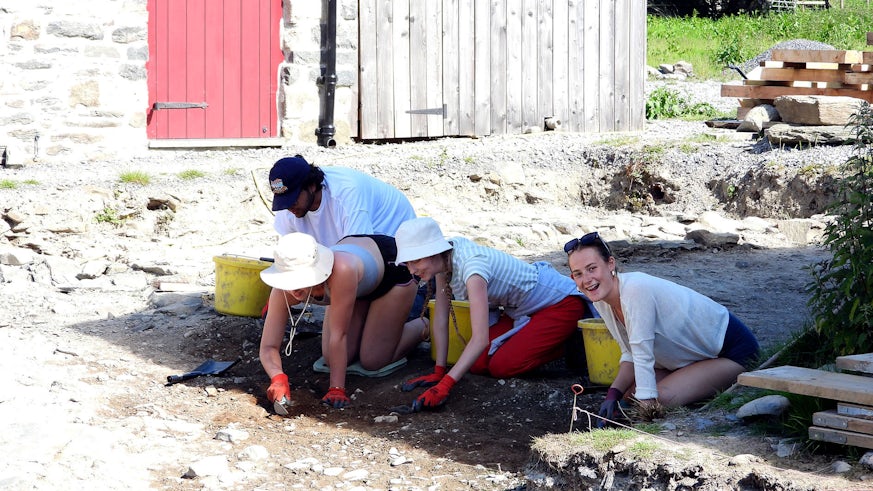Summer of Archaeology
24 June 2021

Archaeology placements to take undergraduates across the UK in pivotal part of their degree
This summer Cardiff Archaeology students are returning to fields, museums, laboratories and archaeological units across the UK.
Students undertaking their Archaeology and Conservation degrees at Cardiff gain invaluable experience on placement and in the field, made possible through the network carefully cultivated by the disciplines which celebrated their centenary in 2020.
This summer through collaboration with esteemed partners, students are heading out to work with a wide range of organisations including Allen Archaeology, Archaeology Wales, Dig Ventures, Geo Arch, Manchester University and Herefordshire Council Archaeology Beneath Hay Bluff, Amgueddfa Cymru National Museum of Wales and the Portable Antiquities Scheme, alongside opportunities to participate in post excavation work at the bespoke archaeology laboratories and the Illustration and Photographic Studios in the School of History, Archaeology and Religion.
Supervised by experts throughout, students will be working on sites across a multitude of periods from the Neolithic to the medieval across the UK, from Strata Florida here in Wales to Arthur’s Stone and Snodhill Castle in England among many others.
Post-excavation opportunities offer another level of experience, working on finds with our respected world-renowned specialists including Professor of Archaeology Niall Sharples on finds from Orosay in Scotland and Dr Ben Jervis on Medieval ceramics.
Placements are often the most popular element of the course for undergraduates, putting skills and knowledge into practice, and delivering the opportunity to uncover the past first-hand.
Dr Oliver Davis, Admissions Tutor for Archaeology said:
“Time and again our students tell us how much they value our placements and the edge this experience of archaeology gives them. The practical training they gain over eight weeks on excavation and other placements really helps our undergraduates develop, not only in technique and application but also in the skills valued outside the discipline like public engagement, teamwork and the ability to communicate to a wide audience.”
All placements take place over the summer vacations after the first and second years of the degree, and unusually in the UK are sourced and funded by the University. Discover more about Archaeology and Conservation degrees at the School of History, Archaeology and Religion online.
